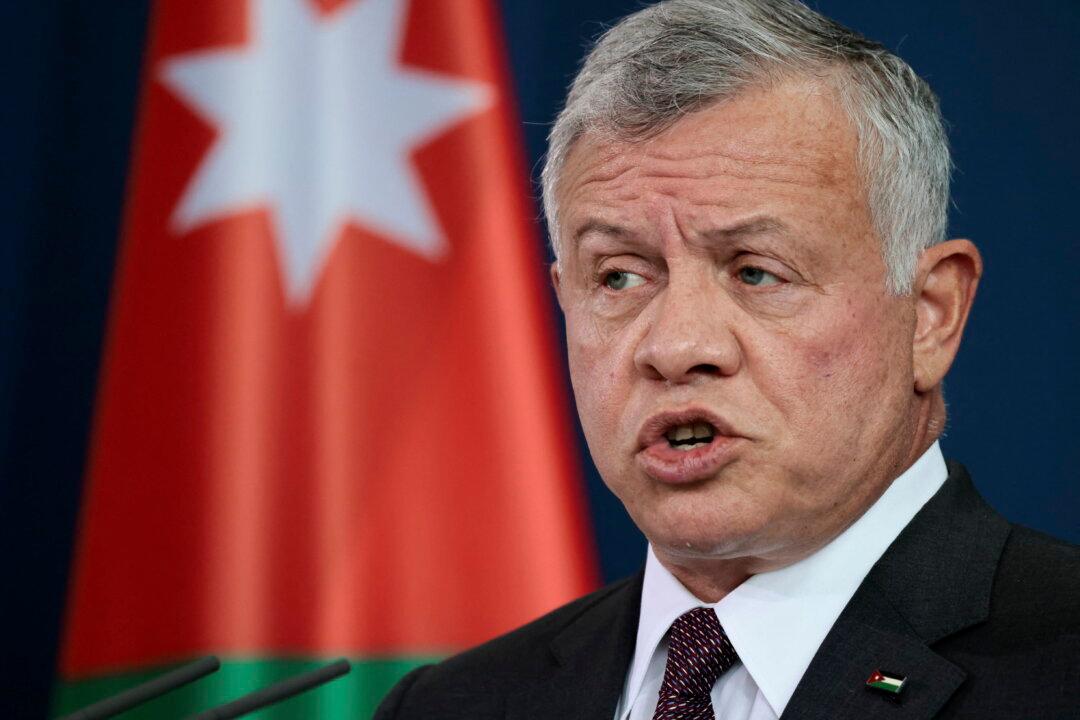Jordanian King Abdullah II has said that neither his country nor Egypt will accept Palestinian refugees, declaring it a “red line” amid the Israel–Hamas conflict, while warning that the Middle East is in danger of “falling into the abyss.”
The Jordanian monarch also asserted during an Oct. 17 news conference alongside German Chancellor Olaf Scholz in Berlin that the situation in Gaza will “get much worse unless we stop this war and the human catastrophe it is creating.”




